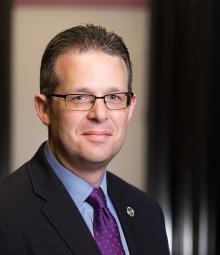The Learning Health (Record) System
Speakers:

Washington University in St. Louis,
Institute for Informatics (I2)
A Learning Health System (LHS) can be defined as an environment in which knowledge generation is embedded into daily clinical practice in order to continually improve the quality, safety, and outcomes of healthcare delivery. While still an aspirational goal for most organizations, the promise of the LHS is a future in which every patient encounter is an opportunity to learn and improve that patient’s care, as well as the care their family and broader community receives. The foundation for building such an LHS can and should be the Electronic Health Record (EHR), which provides the basis for the deep and systematic phenotyping of patients and populations. Such EHR-derived data can be further enhanced with a variety of complementary and multi-scale sources, spanning a spectrum from genomics to imaging to patient-generated behavioral and environmental measures. In this presentation, we will explore the promise of such multi-scale phenotyping, from the perspective of both hypothesis generation as well the delivery of individualized decision-support in the clinical environment. We will use a set of examples drawn from efforts at Washington University and BJC Healthcare that target the provision of precision-diagnostics in the context of Neurofibromatosis Type 1 (NF1), an autosomal-dominant genetic disorder with an incidence of approximately 1 in 3000 individuals. Our focus on NF1 provides a generalizable test-case for such precision approaches to diagnosis, sub-phenotyping, and decision support, due to the heterogeneity and complexity of the disease and its presentation.
About the speaker: Dr. Payne is the Janet and Bernard Becker Professor and founding Director of the Institute for Informatics (I2) at Washington University in St. Louis. He is also the Associate Dean for Health Information and Data Science and Chief Data Scientist for the Washington University School of Medicine, while holding additional appointments as a Professor of Medicine and Computer Science and Engineering. Dr. Payne is an internationally recognized leader in the field of translational bioinformatics (TBI) and clinical research informatics (CRI). He received his PhD with distinction in Biomedical Informatics from Columbia University, where his research focused on the use of knowledge engineering and human-computer interaction design principles in order to improve the efficiency of multi-site clinical and translational research programs. Dr. Payne’s leadership in the informatics community has been recognized through his appointment to numerous national steering, scientific, editorial, and advisory committees, including efforts associated with the American Medical Informatics Association (AMIA), AcademyHealth, the Association for Computing Machinery (ACM), the National Cancer Institute (NCI), the National Library of Medicine (NLM), and the National Center for Advancing Translational Science (NCATS). Dr. Payne is the author of over 200 publications focusing on the intersection of biomedical informatics and the clinical and translational research domains, including several seminal reports that have served to define a new sub-domain of biomedical informatics theory and practice specifically focusing upon those areas. Dr. Payne’s research group currently focuses on efforts in the fields of biomedical data science, applied clinical informatics, and clinical research informatics, including efforts related to: 1) cognitive computing and machine learning based approaches to computational phenotyping; 2) the design and delivery advanced clinical decision support system that can enable shared decision-making; 3) human factors and workflow issues surrounding the use of technology at the point-of-care; and 4) open-science platforms that enable collaborative approaches to biomedical and healthcare data analytics.